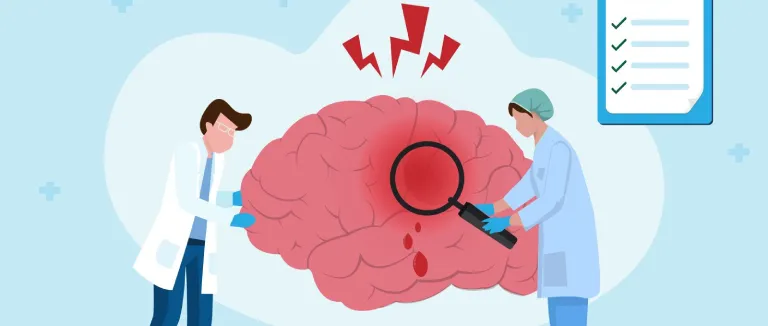Brain disorders can be defined as range of diferent conditions resulting in significant impacts on a person's physical, cognitive, and emotional health. You can get a general idea of causes, types, symptoms, and treatment options for brain disorders below.
What are Brain Disorders?
Brain disorders refer to conditions that disrupt the proper functioning of the brain. Many causes like genetics, trauma, infections, or lifestyle choices different background can cause these disorders. These can be seen in different types like brain injuries, brain tumors, neurodegenerative diseases, mental health disorders, developmental disorders, genetic disorders, or infectious disorders.

Types of Brain Disorders
As mentioned above, there are different types of birain disorders based on their underlying causes and symptoms. The major types include:
Brain Injuries: Brain injuries result from trauma, causing damage to brain tissue, neurons, and nerves. Known examples can be listed as hematomas, blood clots, contusions (bruising), cerebral edema (swelling), concussions, and strokes. Symptoms for these diseases can vary but mostly include vomiting, speech difficulties, numbness, headaches, memory loss, and problems with concentration.
Brain Tumors: Brain tumors can be primary (originating in the brain) or secondary (spreading from other parts of the body). And there are two kinds of tumors; malignant (cancerous) or bening (noncancerous). Common symptoms for brain tumors are headaches, seizures, numbness, nausea, changes in personality, and difficulties with movement, speech, or vision.
Neurodegenerative Diseases: These type of diseases can cause your brain and nerves to deteriorate over time. They can change your personality and cause confusion.Examples for this type are Alzheimer's disease, Parkinson's disease, Huntington's disease, ALS, and various forms of dementia. Symptoms may include memory loss, mood changes, anxiety, agitation, and a loss of inhibition.
Causes of Brain Disorders
Brain disorders can have many possible underlying causes like genetics, trauma, infections, neurodegeneration, autoimmune disorders, environmental influences, etc. So, in order to get a definite answer for why that specific problem occurred, you should definitely seek and get a healthcare professional's help.
Symptoms of Brain Disorders
Symptoms can vary widely depending on the specific condition. They may manifest as changes in behavior, cognition, mood, motor function, or sensory perception. Headaches, seizures, memory loss, speech difficulties, mood swings, and problems with movement or coordination are some common symptoms.

Diagnosing and Treating Brain Disorders
Diagnosing brain disorders involves a comprehensive assessment, including medical history evaluations, physical and neurological examinations, and imaging tests such as CT scans, MRI, or PET scans. Treatment options depend on the specific condition, its severity, and the individual's overall health. These options can be listed asmedication, therapy, lifestyle modifications, and, in some cases, surgery. Early intervention plays a crucial role in effective management and improving outcomes.
Frequently Asked Questions
Is there a cure for brain disorders?
While some brain disorders can be effectively managed and symptoms controlled, others, such as neurodegenerative diseases, currently have no cure. Treatment focuses on managing symptoms, slowing disease progression, and enhancing quality of life.
Can lifestyle choices impact brain health?
Yes, lifestyle choices significantly influence brain health. Exercising regularly, maintaining a balanced diet, getting sufficient sleep, managing stress levels, and avoiding substance abuse can positively impact brain function and reduce the risk of certain brain disorders.
Are there any measures that can prevent brain disorders?
Eventhough it depends on the condition, certain preventive measures can help reduce the risk. Wearing protective gear during activities with a risk of head injuries, leading a healthy lifestyle, managing chronic conditions, and seeking early treatment for infections or illnesses can lower the likelihood of developing brain disorders.
* Contents of this page is for informational purposes only. Please consult your doctor for diagnosis and treatment. The content of this page does not include information on medicinal health care at Liv Hospital









